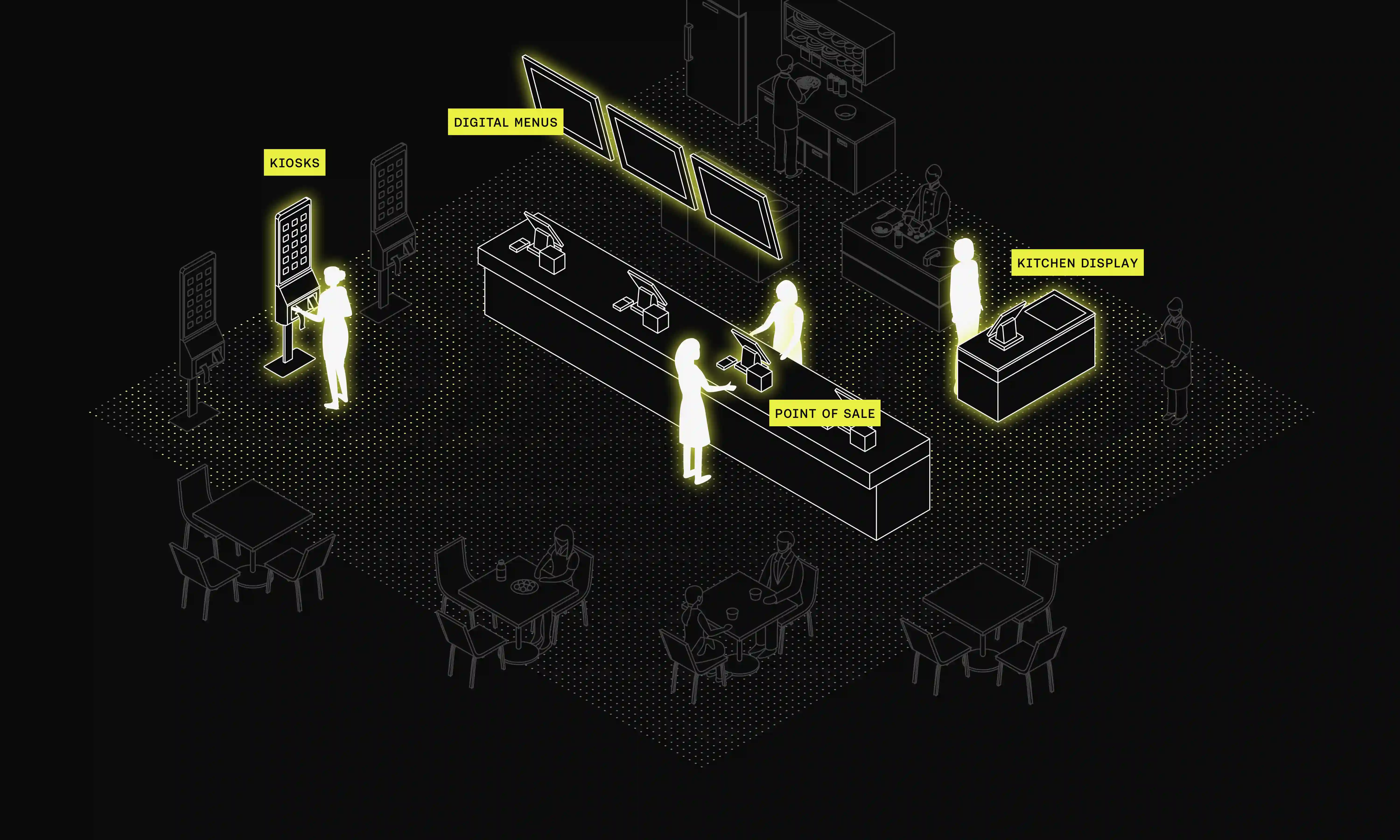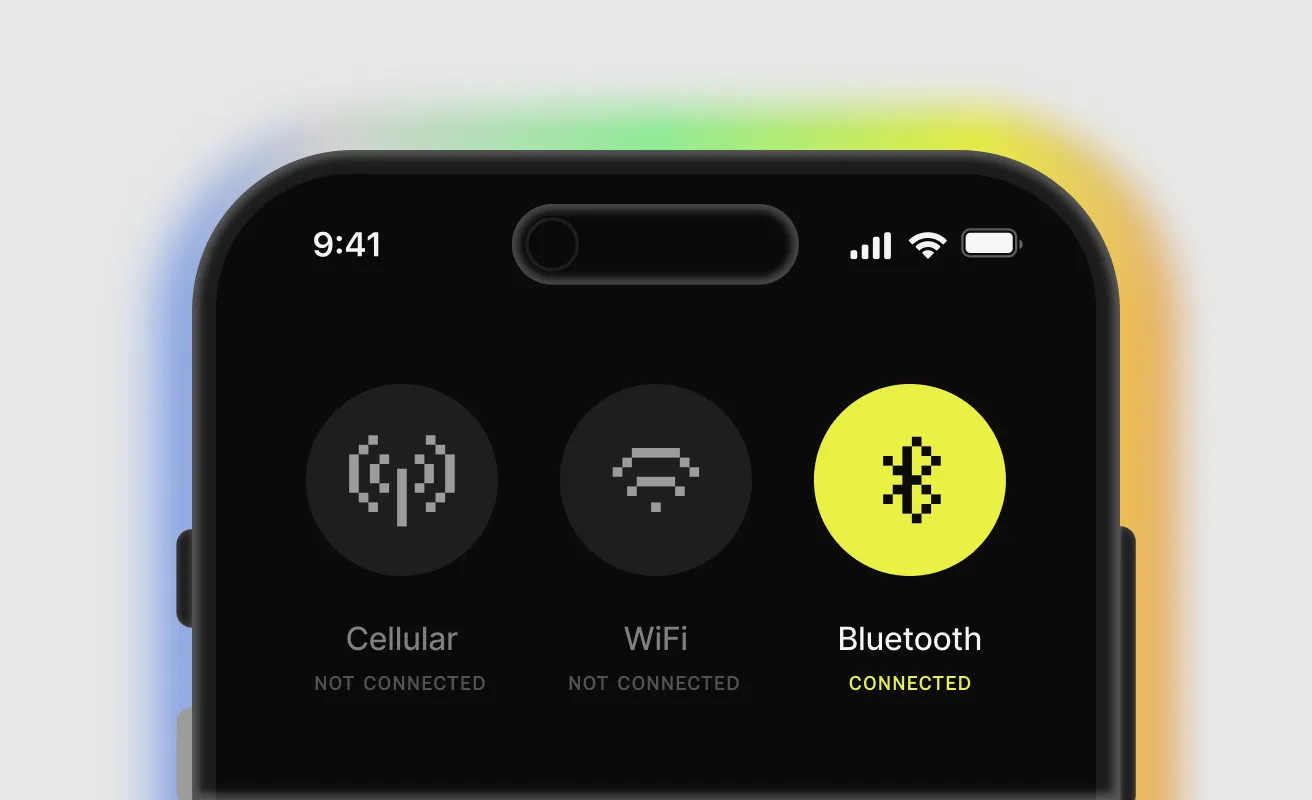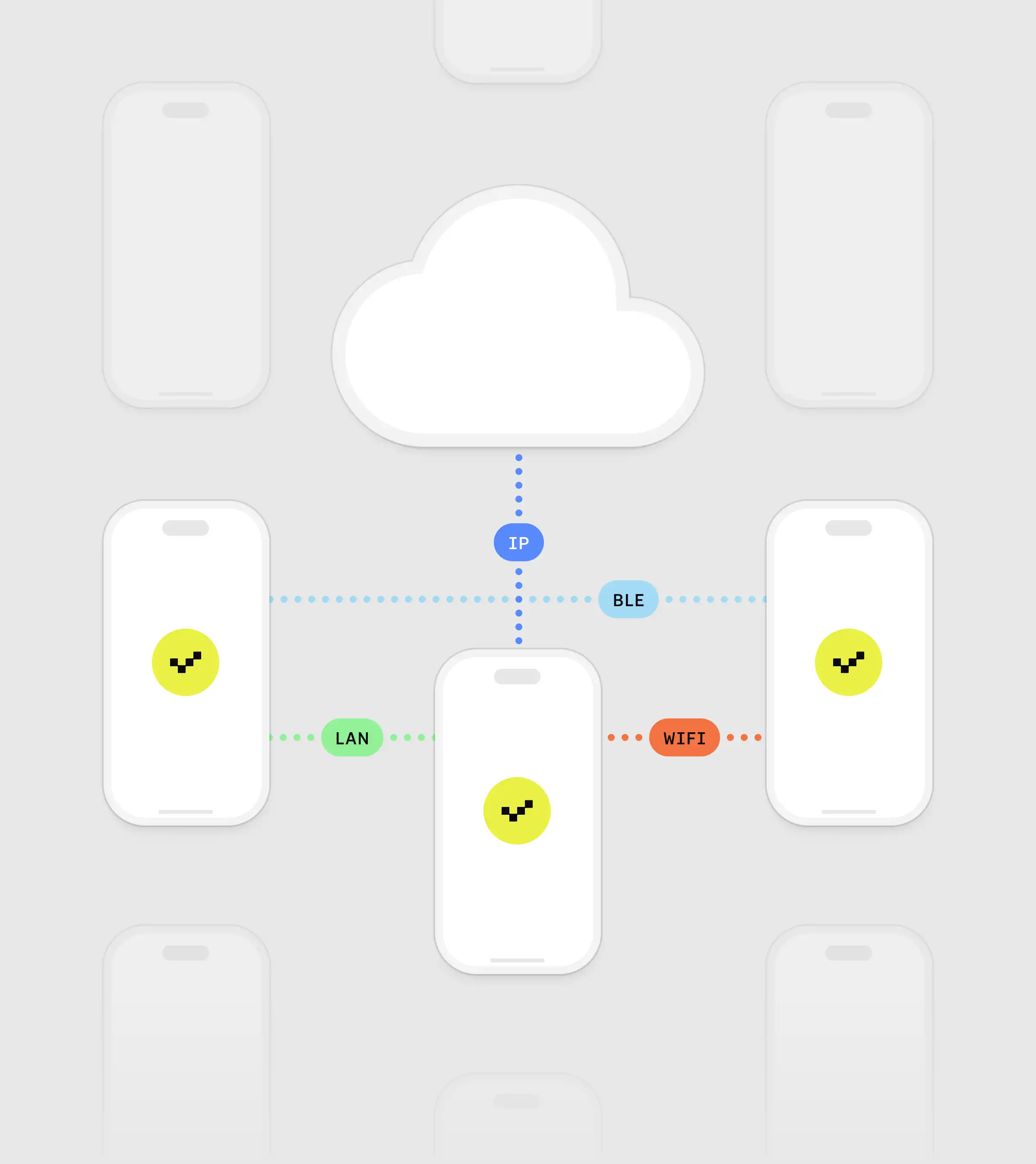Don't Let Connectivity Disrupt High Quality Service

Staff Never Even Realize Devices are Offline: Devices sync data locally without complex hardware or expensive infrastructure
Orders Always Make it to the Kitchen Display System: No more order loss due to offline issues
Inconsistent Connectivity Doesn't Limit Speed of Service: Ensure orders are always delivered quickly by seamlessly adapting to changes in environment and network status
Without Single Points of Failure: Devices talk directly, bypassing single points of failure that cause slow sync, like in-store servers, access points, or the cloud




Your mobile and edge devices are more powerful than you realize, capable of advanced networking without the need for new devices, hardware, or networking setups.

Keeps registers, kiosks, tablets, kiosks, ordering screens, kitchen display systems, and more seamlessly in sync, continuously up-to-date, and ready to transact in any environment.

Ditto's edge-native, offline-first database is built specifically to thrive on mobile and edge devices, without relying on cloud-based services.
Ditto's offline-first database ensures your operations never stop by enabling devices to sync locally—even if the internet goes down. Through peer-to-peer sync and mesh networking, registers, kiosks, and kitchen displays communicate directly with each other, so orders keep flowing without relying on a server or the cloud.
Devices don’t wait for connection to WiFi, servers, or the cloud. They sync directly with each other in-store over Peer-to-Peer Wi-Fi (think Airdrop), Bluetooth Low Energy, or Local Area Network. A waiter’s tablet can talk directly to the kitchen display or register. If one connection drops, Ditto automatically reroutes through another channel or device within the network.
Ditto complements your existing cloud systems with edge-native technology built to thrive in disconnected situations. The cloud still plays a role for central reporting, analytics, and cross-location visibility, but your locations are never dependent on it for real-time operations. Ditto opportunistically syncs back to the cloud whenever a connection is available. Learn more about how Ditto works with your cloud here.
Yes. Ditto is trusted by leading global brands like Chick-fil-A, which relies on Ditto to keep its restaurants resilient and connected. Numerous POS providers—ranging from major enterprise platforms to fast-growing innovators—are building Ditto directly into their core products to deliver always-on reliability for their customers.
Even a few minutes of downtime can cost millions. Ditto eliminates outages and latency, ensuring every order processes and syncs quickly. With Ditto, your brand avoids costly disruptions that erode revenue.
Absolutely. Ditto’s edge-native architecture supports mobile, edge, and server devices of all kinds such as kiosks, menu screens, kitchen display systems, and more.
Ditto’s self-healing sync drastically reduces slow sync, order loss, downtime and, ultimately, escalations to corporate. That means fewer firefights and more bandwidth for your teams to focus on growth initiatives, innovation, and new rollouts.
Yes. Ditto protects sensitive data everywhere it flows with end-to-end encryption, SOC 2 compliance, and role-based access controls. You get resilient, uncompromised security for your POS systems and customer information.








